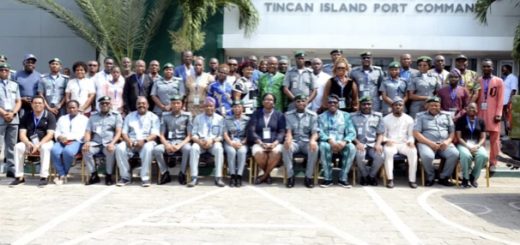Nigeria’s Transport Infrastructure: A Summit to Shape a Sustainable Future
The transport sector in Nigeria stands at a pivotal crossroads. With the maiden Transport Infrastructure Summit scheduled for October 29, 2025 at the Providence Hotel in Ikeja, stakeholders from across aviation, maritime, inland waterways, rail, and road will converge to interrogate the state of the nation’s transport infrastructure and chart a path toward a more innovative, sustainable, and efficient system.
Dialogue and Solutions
JustAlive Communications Limited, publishers of JustNet News, is organising the event under the theme: “Nigeria’s Transport Infrastructure: Innovation for a Sustainable Future.” The goal is clear: bring together experts, policymakers, and industry leaders to exchange ideas, share knowledge, and proffer practical solutions to the sector’s most pressing challenges.
Pearl Ngwama, Managing Director of JustAlive Communications Limited, emphasises that the summit will provide a comprehensive platform for discussions that cut across all modes of transport. “This summit will provide a platform for experts, policymakers, and industry leaders to share knowledge, best practices, and standards, and proffer solutions to address the challenges facing Nigeria’s transport infrastructure,” Ngwama said. The event will assemble professionals from aviation, maritime, inland waterways, rail, and road to take a holistic look at the sector.
Current Landscape
Nigeria’s transport infrastructure remains a critical pillar of national development, essential for moving goods, people, and services and for boosting economic productivity. Yet the sector faces persistent hurdles:
- Inadequate funding: Capital for infrastructure projects is often insufficient or poorly allocated.
- Maintenance gaps: Much of the existing assets suffer from neglect, leading to reliability and safety concerns.
- Weak intermodal connectivity: Fragmented systems across modes hinder seamless movement and efficiency.
- Policy inconsistency: Frequent policy shifts create uncertainty for investors and operators.
The summit intends to address these issues head-on, exploring innovative, technology-driven solutions that can reposition Nigeria’s transport system for long-term sustainability and global competitiveness.
Sustainable Future
Key takeaways expected from the summit include:
- Holistic sector view: By incorporating aviation, maritime, inland waterways, rail, and road, participants can identify synergies and optimize intermodal transport.
- Innovation and technology: Leveraging digitalisation, data analytics, and new mobility concepts to improve efficiency, safety, and reliability.
- Standards and best practices: Sharing knowledge on international standards to elevate quality and performance across the sector.
- Policy alignment: Proposing coherent, stable policy frameworks that attract investment and drive steady progress.
Attendees will gain exposure to current trends, successful case studies, and actionable strategies tailored to Nigeria’s context. The summit promises a collaborative environment where policymakers, industry players, and technologists can exchange ideas, forge partnerships, and develop implementation roadmaps.
Why This Initiative Matters for Nigeria
Transport is more than moving people from point A to point B. It’s a catalyst for economic development, influencing trade, job creation, and quality of life. By addressing funding, maintenance, connectivity, and policy consistency, Nigeria can unlock higher GDP growth, lower logistics costs, and more resilient supply chains.
As Nigeria seeks to position itself for sustainable growth, events like the Transport Infrastructure Summit serve as critical catalysts for change—bringing together the right minds to translate vision into tangible outcomes.



